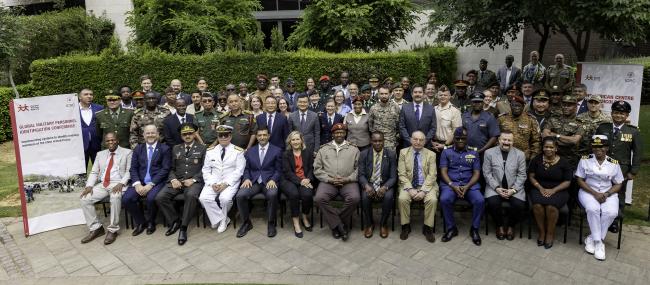Military Personnel Identification Project seeks to convene armed forces from across the globe to work towards the creation of International Standard Guidelines for Military Personnel Identification, to ensure that during, and in the aftermath of armed conflict, deceased members of the armed forces are timeously searched for, recovered, identified, and their families informed of their fate. This is accomplished by ensuring that proper physical identification is issued to members of the armed forces, biometric information and samples are collected prior to their deployment into operational environments, and military mortuary affairs programs are robust and put the dignity of members of the armed forces and their families at the center of fatality management. These measures all contribute to preventing members of the armed forces from becoming unaccounted for in case of death during combat.
Check out the video below to learn more.

Global Military Personnel Identification Conference
From 15th to 18th October 2024, the Central Tracing Agency and the Pretoria Delegation hosted the first global Military Personnel Identification Conference.
The conference, which took place in Pretoria, South Africa, brought together more than fifty State armed forces from across the globe to exchange best practices on the pre-deployment collection of personal and biometric information and samples from their personnel and the systematic search, recovery and forensic identification of human remains. These efforts will provide bereaved families and communities affected by military deaths accurate and reliable information and the required support.
The conference is part of a broader ICRC effort to mobilize states to standardize systems for aiding in the identification of military personnel who become unaccounted for or remain unidentified on the battlefield. A global military identification survey already conducted in 2024, as well as the upcoming conference and a consultative process will draw experiences, expertise and sound mortuary affairs practices from State armed forces toward the development of international guidelines and their implementation.

